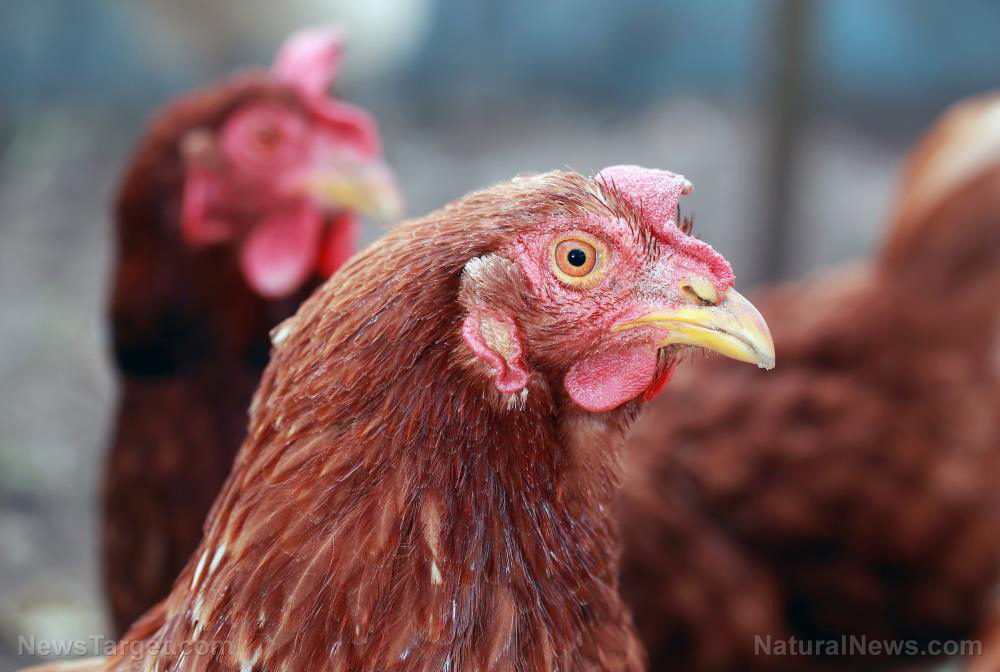
Residents of Honolulu found themselves on the losing side of a battle against feral chickens, with the ferocious fowls disrupting the community.
Several county residents testified about the inconvenience caused by the wild chickens. Majid Joneidi described the "cacking and crowing" of the wild roosters as "an unfair burden and hardship" that prevented him from sleeping properly. Desiree Garner, meanwhile, said the constant crowing made her feel like she is in a barnyard whenever she would make a call to the mainland United States.
Alexander Esin remarked that he has to "dodge [the feral chickens] all over the roadway" – which number more than a hundred. Angel Jackson also agreed with how the chickens are becoming road hazards, saying: "We also try not to hit them in the middle of [the] road." She added that she hears the wild chickens at all hours of the day, disturbing people who are sleeping.
Murdoch Ortiz shared that the wild chickens caused "havoc" by jumping on trash bins and ripping up trash bags. Sharon Peine also attested to the wild chickens' destructive nature with how they are digging up yards and gardens, "even foraging under walls and sidewalks." She emphasized: "This is insane and needs to be corrected."
Feral chickens have been rampant across the island of Oahu for many years, but recently became more aggressive. "They've been here for many years, but the issue has gotten really bad lately. Their populations are skyrocketing, and they are quickly expanding their territory," said resident Michele Harman.
Kimberly Hashiro, director of the Honolulu Department of Customer Services (DCS), commented that some residents are feeding the feral chickens – thereby exacerbating the problem. "So just by having this one vendor out and about, they have mentioned that some of the neighbors are feeding the chickens in the area," she said. Hashiro mentioned that a social media campaign to discourage people from feeding the wild chickens has been launched.
Authorities think of ways to address the feral fowls
Honolulu authorities did not chicken out of the issue, responding to the problem in various ways.
One such response involved putting traps in five areas, but this barely had any effect as only 67 chickens were caught in the past two months. DCS spent $7,000 for the total number of chickens caught in the traps, which amounted to about $104 per chicken. The traps meant to catch chickens are reportedly being vandalized and stolen, with the culprits unknown.
Given this outcome, Hashiro stated that Honolulu is now striving to reduce the cost of trapping feral chickens to $75. "I think there needs to be more time really spent to find appropriate locations and to see how effective funds being spent are. We're actually obtaining quotes now from other vendors to see what they might be able to do."
To this end, Honolulu sets forth a proposed budget of $50,000 for the pilot program. This was approved for initial review, and is set to be discussed further at the Honololu council meeting on June 1.
Senate Bill (SB) 2195, introduced in the Hawaii Senate, also sought to aid efforts in addressing the feral chicken problem. The proposal aims to manage the population of wild chickens through "humane and cost-effective methods." Beginning July 1 until June 30, 2027, the Aloha State's health and agriculture departments will work together for this pilot program to reduce wild chicken numbers – including the use of contraceptives for these.
The bill acknowledged that "feral chickens and roosters are a persistent nuisance in urban and suburban communities throughout the state." Aside from the property damage and noise pollution, it also cited health concerns stemming from fowl droppings and parasites.
"Feral chickens carry diseases that threaten or kill native Hawaiian birds, [and] there is also a risk that feral chickens will spread disease to domestic fowl and to other wild birds," it added. (Related: No time for "fowl" play: 5 Strategies to protect your chickens from avian flu.)
Unfortunately, SB 2195 failed to gain ground on the floor of the Hawaii State Legislature.
Watch this video featuring animals fighting back against humans.
This video is from the Ozzy Man Reviews 2.0 channel on Brighteon.com.
More related stories:
Wild pig-boar hybrids take over closed-off Fukushima danger zone.
Animals push back on boundaries, invade human spaces.
Sources include:
Please contact us for more information.





















